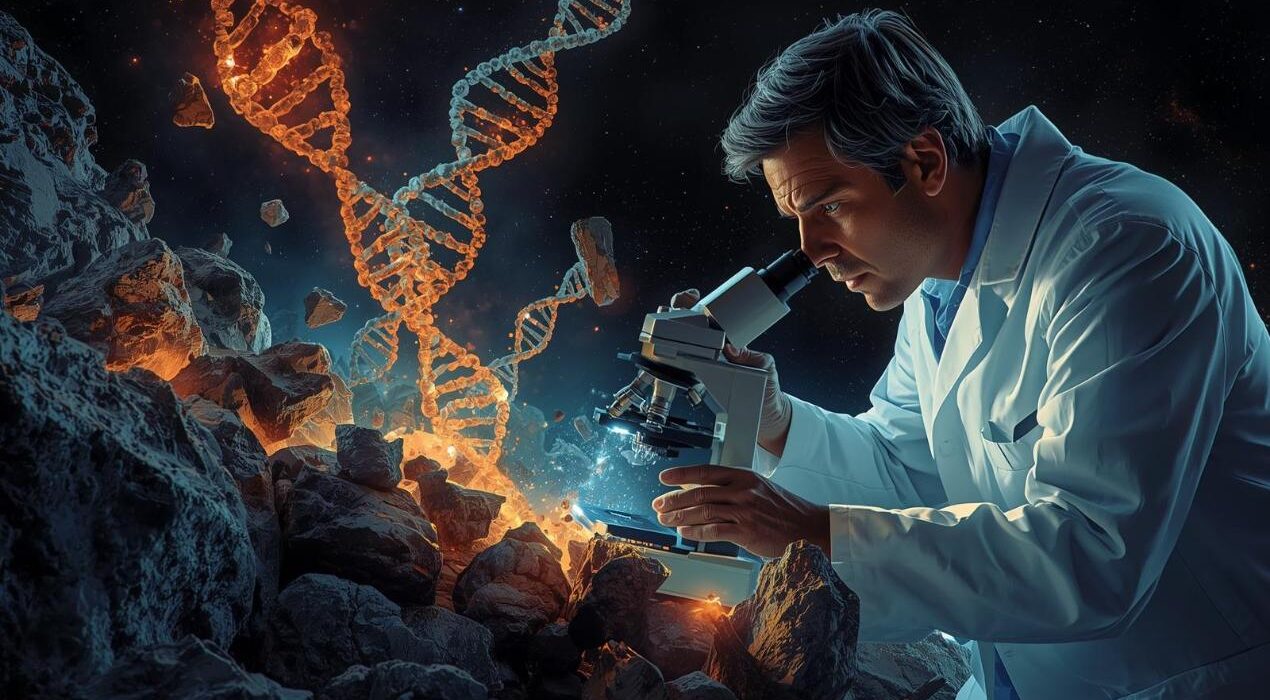Scientists have uncovered compelling evidence that life’s essential ingredients may have arrived from space. For the first time, researchers have identified all the nucleobases—the molecular building blocks of DNA and RNA—in meteorites. This discovery strengthens the idea that some of life’s raw materials originated beyond Earth.
Meteorites, which are fragments of asteroids or comets that survive the plunge through Earth’s atmosphere, have long been studied for clues to life’s beginnings. Using advanced chemical detection methods, researchers confirmed the presence of adenine, guanine, cytosine, thymine, and uracil—the same molecules that make up the genetic code of every organism on Earth.
The finding is groundbreaking because it suggests these molecules are not rare but may naturally form across the universe. Their detection in multiple meteorites highlights their widespread availability in space.
This has profound implications for astrobiology, the study of life’s potential beyond Earth. If nucleobases were delivered to the early Earth through meteorite impacts, they could have provided the chemical foundation needed for life to emerge. “The chemistry needed for life exists naturally in the universe,” the researchers noted, emphasizing that such processes could also occur on other worlds with the right conditions.
By showing that all DNA and RNA components can form without life, this discovery helps explain how life might arise spontaneously on planets or moons elsewhere in the cosmos. It also provides a powerful clue for scientists searching for extraterrestrial life, suggesting that the seeds of biology could be scattered widely across the galaxy.
This finding reveals that the universe itself may be predisposed to create the ingredients of life—long before life begins.
Scientists Find All DNA and RNA Building Blocks in Meteorites, Hinting at Life’s Cosmic Origins






